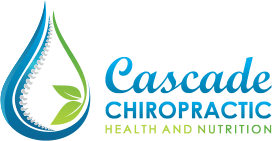Brain health is a hot topic lately. We have 72 million Baby Boomers in the United States currently, many of them aging more rapidly than they would like. It is anticipated that there will be fewer than 20 million Baby Boomers by mid century. Herein lies the challenge; there are long term care centers popping up on nearly every corner around the country to take care of this aging population, not because they are sick, but because their brains don’t work anymore!!
So why are dementia, Alzheimers, stroke and other forms of brain disorders on the rise?
Let’s explore some of those questions so that we can avoid being a statistic in this very disturbing trend.
The brain is one of the first things to develop when we are conceived, and it is the most important organ. The nervous system, of which the brain is a large part, controls and coordinates all the functions of the body. The brain consists of several parts, the gray matter, the cerebellum, the temporal lobes, the parietal and frontal lobe, the hypothalamus and pituitary that control the hormonal system, and all the other very important components. It cannot function well without the proper nutrients. You may know that from our earliest development, we are dependent on certain vitamins and minerals, fats and nutrients to have a healthy functioning brain. Without folic acid for example our neural canal does not form correctly and we might get spina bifida, without enough good fats they have determined that we will have a smaller brain than we should. When certain nutrients are deficient like protein, we don’t make the neurotransmitters or the chemicals that run the brain, resulting in conditions like depression, bipolar, schizophrenia, and more.
The brain is like a very complicated switch board. Information goes both ways, incoming information from the body is processed and instructions regarding that information goes out to the body in response to either correct a problem or make a change. For example, lets say that you come up to a hot stove, as you get nearer the temperature is hotter and hotter.
How does the brain respond?
- It might make your blood vessels larger to increase the ability of the body to cool off.
- It might make your sweat glands activate.
- It might cause you to move away from the heat.
- All this happens without your conscious thought, thankfully!
Many of our automatic processes are controlled by the autonomic nervous system (ANS). For example, you have been exposed to some chemicals and need to process some trash out of the bloodstream, its probably a good thing that we don’t have to tell the liver and kidneys to do their job or keep track of those processes.
The brain is intricately involved in many of our conscious and unconscious bodily functions. If however we have some damage or faulty nerve transmissions we need to go about figuring out the problem and providing support in a non invasive way if at all possible. Damage to the brain can occur due to many things. Our modern food supply is nutrient deficient due to processing and our desire to create a longer shelf life. The chemicals we are exposed to on a daily basis in our water, air, food, the genetically modified food we eat, and the toxins in our environment, and body care products can all contribute to the body’s inability to remove trash and maintain healthy cell function.
I recently read a book about early brain surgery and since they didn’t know that certain parts of the brain were connected to certain activities, they used the early brain damaged patients as guinee pigs so to speak. They would take out parts of the brain, and wait to see what happened. Then they could document the changes and use that information for future purposes (The Tale of the Dueling Neurosurgeons by Sam Kean). Fortunately for us, that was a long time ago and we now have the modern conveniences of MRIs, CT scans and PET scans. They can determine exactly where the lesion is and deal with it as we choose. Some of the conditions that can adversely affect the brain are discovered on scans, some on bloodwork, but many, to be honest, are discovered by the family members or patients themselves. We are the ones who find little differences that stick out on a day to day basis. The earlier we handle these issues the better. They tend to be progressive and nutrition has been shown to be a huge part of repair.
SOME OF THE MOST COMMON CONDITIONS THAT CAN AFFECT THE BRAIN ARE:
- Alzheimers (AD)
- Dementia
- Type 2 Diabetes (T2D)
- Stroke
- High Blood Pressure (HBP)
- Medication Side Effects
- Parkinson’s
You may know someone with one or more of these conditions, I have helped many patients with these conditions, but not without their cooperation. You see, these and many other health concerns are often self-inflicted. I know that seems weird, who would give themselves a stroke or T2D? No one in their right mind, right?
Dr. Suzanne DeLaMonte from the Alpert Medical School at Brown University is a Neuropathologist, she states that Alzheimers and other forms of dementia are a result of diabetes of the brain. For some of you this is a very real issue since one in three adults today has pre-diabetes or is a diabetic. Pre-diabetes is having a Hemoglobin A1C of 5.7 or higher and diabetes is having a Hemoglobin A1C level of 6.1 or higher, depending on the lab and part of the country you live in. Ideally your 3 month average of blood sugar should be between 4.1 and 5.6.
So how does high blood sugar affect the brain long term? The pancreas makes insulin, insulin takes sugar out of the blood stream, takes it into the cells and makes energy. If we abuse sugar, or things that turn into sugar, then the pancreas overproduces insulin and the insulin receptors get down-regulated, leaving the blood sugar to get higher and higher. When blood sugar is elevated, the red blood cells (RBC’s) get glycated, or sugar coated, like an M&M. The sugar coating process is like having razor wire on your RBCs and they can cause damage when they travel down the tiny capillaries. This micro-circulation damage can affect our kidneys, cardiovascular system, eyes and brain. Recent studies have shown that in addition to the pancreas, the brain also makes insulin, that shows just how important insulin is to the brain!
In Alzheimers, the parts of the brain that are damaged by lack of insulin are the parts that deal with memory and personality. This is why its so difficult for family members taking care of a loved one with this condition. Insulin is very important for making chemicals known as neurotransmitters, these chemicals allow the different parts of the brain to communicate with each other.
So are Type 2 Diabetics more likely to get Alzheimers? YES, twice as likely. It does not mean that all people with T2D will get Alzheimers, or that all people with Alzheimers have T2D, but there is a lot of overlap. We need to reduce our dietary exposure to sugar, excess fruit, and processed grains, as all of these things create an insulin response and can lead to higher blood sugar levels and an elevated Hemoglobin A1C. Prevention is so important when it comes to the brain.
While, there are some who say that Alzheimers is a genetic issue, the ability of humans to change their genes takes generations and Alzheimers has been increasing in both frequency and severity over the past 30 years, so there must be an epi-genetic reason for the upsurge. Epigenetics is another word for environmental. One popular environmental cause has been linked to nitrates. Nitrates are in our fertilizers, preservatives in and on our food, and they are added to meats to retain color and flavor. They are added to foods that travel a long distance from Chile, Mexico and across the country without spoiling. Fish, cheese, hot dogs, ground beef, smoked meats like bacon, smoked turkey and ham, as well as beer and tobacco may have nitrates or nitrosamines in them. You can find alternative without nitrates and nitrites, and we should all strive to avoid them whenever possible. Recent research has shown that very low limited exposure to nitrosamines found in food can cause Alzheimers type brain degeneration, dementia, diabetes, fatty liver disease and obesity.
HOW CAN WE REDUCE OUR RISK?
Avoid exposure whenever possible. Look for sodium nitrite on food labels. Avoid processed foods, eat organically grown food whenever possible, and if that is not possible, at least eat locally grown food. Get educated about the harmful effects of chemicals in our food chain and educate children in your life and provide healthy choices. By packing a healthy lunch the night before work or school, you can avoid the processed or fast food options.

FOOD SUBSTITUTIONS THAT CAN MAKE A DIFFERENCE
- Bananas ——————–Berries
- Soda ————————Water / Iced Tea
- Potatoes ——————–Sweet Potatoes
- Corn ————————Quinoa or Brown / Wild Rice
- Peanuts ———————Any Other Nut
- Fruit juice ——————Water / Tea
- Wheat ———————–Quinoa / Brown Rice / Oats
- Refined Sugar—————Stevia / Monkfruit / Raw Honey
What if you’re already eating a great diet, you’ve made that jump, and you need to do some repairs for damage done in your prior years? Here is a micro-circulation support protocol you can add to your daily food prep.
MICRO-CURCULATION SUPPORT PROTOCOL FOR MEAL PREP
- Garlic: Preferably crushed raw, you can add it to salad dressing, eggs, veggies, meat etc.
- Ginger: In water, a smoothie, or just chew it.
- Turmeric: A good quality, concentrated, bioavailable product like MediHerb’s turmeric with fenugreek.
- Berries: 3 oz. Blueberries, strawberries, raspberries, blackberries per day.
- Dark Chocolate: At least 70% cacao, about 1 ounce per day is medicinal!
- Beets: Roasted or juiced. If boiled, drink the water, it’s where all the nutrients are.
Exercise such as yoga, tai chi, meditation, strength exercises, biking and walking all contribute to maintaining a healthier blood sugar level and a happier brain.
STANDARD PROCESS & MEDIHERB BRAIN SUPPORT PRODUCTS
- Tuna Omega 3 Oil
- Bacopa
- RNA
- Ginkgo Forte
- Turmeric Forte
- Neuroplex
- OPC Synergy


If you or a loved one is having brain or memory issues, call our office to find out if dietary changes and some of these products might be the first step towards a healthier life!
CONTACT:
Dr. Virginia S. Irby D.C.,DABCO, ACN
Cascade Chiropractic
2371 Iron Point Rd. Ste. 130
Folsom, CA 95630
916-844-2800
